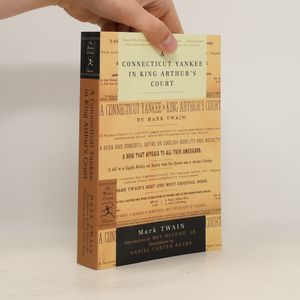The book is currently out of stock

More about the book
'Oh go away! Leave with the rest of the dream, won't you?' 'What dream?' 'The dream that I am in Arthur's court, a person who never existed, and that I'm talking to you, a person I must have made up.' 'And is it a dream that they have decided you are to be burned at noon tomorrow?' he asked me. The boy was right, the situation was serious.
Book purchase
A Connecticut Yankee in King Arthur's Court, Mark Twain
- Language
- Released
- 2018
- product-detail.submit-box.info.binding
- (Paperback)
Payment methods
We’re missing your review here.






















